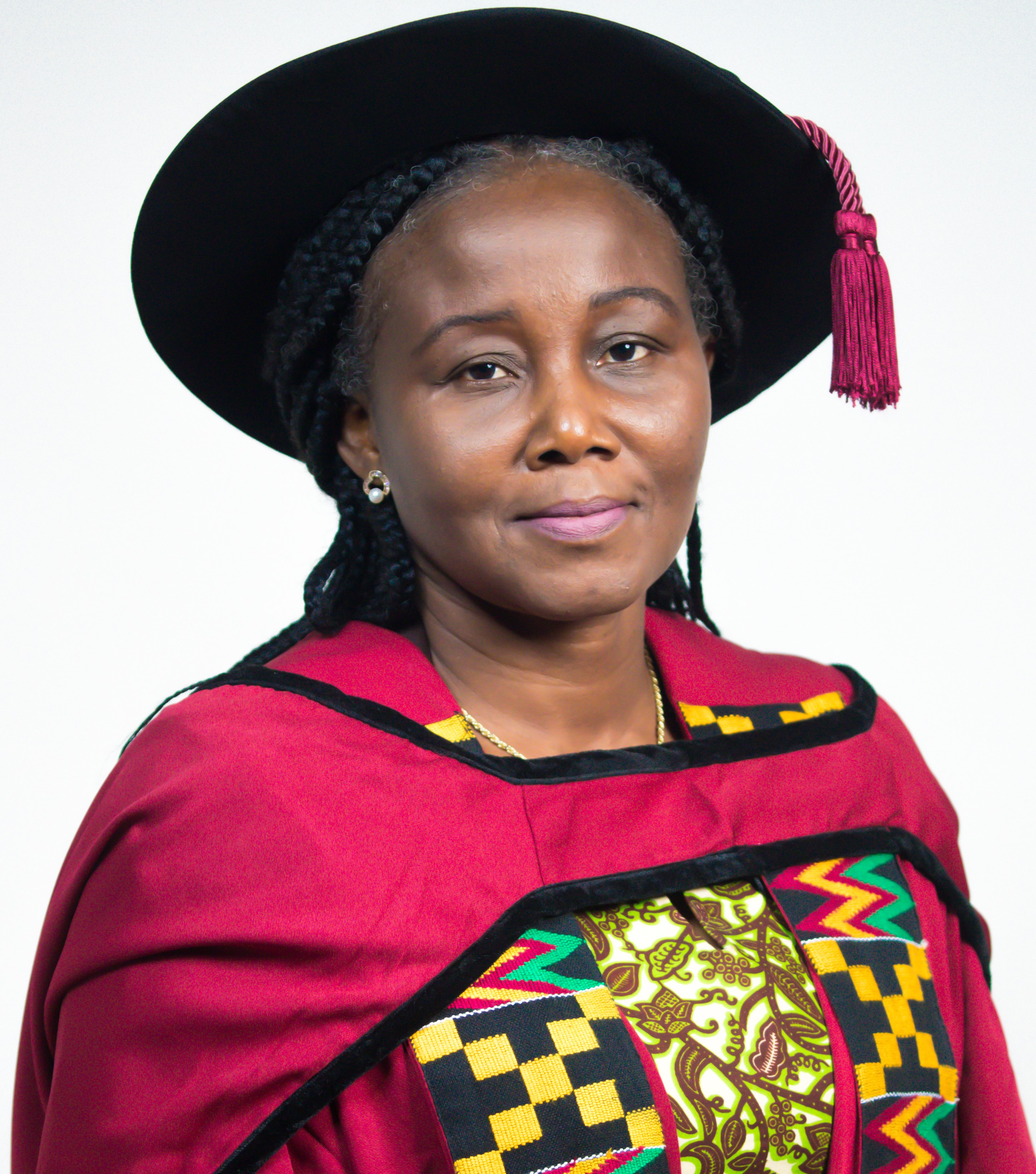
Dr. Priscilla Commey-Mintah
Lecturer
About
Priscilla Commey Mintah is a Lecturer at the Department of Teacher Education, University of Ghana, Accra, Ghana. She holds a PhD in Educational Psychology from the University of Cape Coast, Cape Coast, Ghana.
Education
2015-2018 Ph.D. in Educational Psychology, University of Cape Coast, Ghana
2009-2011 MPhil Educational Psychology, University of Cape Coast, Ghana
2002-2006 Bachelor of Education Psychology, University of Cape Coast, Ghana
1996-1999 Teacher’s Certificate “A”
1993-1996 Senior Secondary School Certificate St. Monica’s Training College, Kumasi – Ghana Wenchi Secondary School, Wenchi- Ghana (SSCE)
Research Interest
Emotional Intelligence
Stress
Adolescence
Middle-Age Crisis
Publications
Amponsah, K. D., Narh-Kert, M., P. B. K. Donkor (Opare) & Commey-Mintah, P. (2023). Effect of conceptual transformation on electrochemistry performance of high-performing high school learners in South Africa. African Journal of Educational Studies in Mathematics and Sciences, 19(1).
Ayittey, R. F., Azumah, D. A., Amponsah, K. D., & Commey-Mintah, P. (2023). Effectiveness of Multimedia versus Traditional Teaching Methods on Chemistry Practical Performance among Senior High School Students in Ghana. Education Quarterly Reviews, 6(3), 125-134.
Amponsah, R. O., Addai-Mununkum, R., Commey-Mintah, P. Awoniyi, F. C., & Amponsah, K. D. (2023). Perspectives of Basic School Level Headteachers in Accra Metropolitan Education Directorate about their Job Satisfaction amid the COVID-19 Pandemic. The Cradle of Knowledge: African Journal of Educational and Social Science Research, 11(1), 21-29.
Yeboah, R., Amponsah K. D., Commey-Mintah, P., Sedofia, J., & P. B. K. Donkor (Opare). (2023). Game-based learning in Ghanaian primary schools: listening to the views of teachers. Education 3-13, 51(2). DOI: 10.1080/03004279.2023.2171269
Commey-Mintah, P., Opoku, A., Kudjordji, S., K., Awuah, F. (2023). Factors Influencing Students’ Academic Performance: The Case of Pre-Service Teachers at Dambai College of Education in Ghana. Education Quarterly Reviews, 6(1), 111- 124.
Commey-Mintah, P., Adjei-Boateng, E., Boateng, F. K., Awoniyi, F. C., Amponsah, K. D. (2023). Occupational Stress and Marital Contentment in the COVID-19 Era Among Married Tutors of Colleges of Education. Journal of Education and Learning (EduLearn), 17(1), 102-112.
Amponsah, K. D., Aboagye, G. K., Narh-Kert, M., Commey-Mintah, P., Boateng, K. F. (2022). The Impact of Internet Usage on Students’ Success in Selected Senior High Schools in Cape Coast metropolis, Ghana. European Journal of Educational Sciences 9(2), 1-18.
Asomah, R. K., Assamah, G., Commey-Mintah, P., Boateng, F. O. (2022). The Use of Social-Media and IT Application Tools for Teaching in Ghanaian Universities: Case of University of Cape Coast, Ghana. European Journal of Education and Pedagogy. 3(5), 24-32.
Commey-Mintah, P, Awoniyi, F. C., Narh-Kert, M., Tutu-Danquah, C., & Amponsah, K. D. (2022). Effects of Stress and Coping Mechanisms: The Case of Pre-Service Teachers in Selected Colleges of Education in Ghana. American Journal of Educational Research, 10(8), 491-500.
Osai, J. A., Amponsah, K. D., Ampadu, E., & Commey-Mintah, P. (2021). Teachers’ experiences with overcrowded classrooms in a basic school in Ghana. International Online Journal of Primary Education (IOJPE), 10(1), 73-88.
Commey-Mintah, P., Adasi, G. S., Amponsah, R.O., & Amponsah, K. D. (2020). Gender influence on pre-service teachers’ emotional intelligence at selected colleges of education in Ghana. American Journal of Educational Research, 8(10), 795- 803.
Commey-Mintah, P., Amponsah, K. D., Adasi, G. S., & Amponsah, R.O. (2020). Adolescents’ attitude towards masturbation: Practical study on a sample of senior high school students in the Cape Coast metropolis of Ghana. European Scientific Journal, ESJ, 16(28), 195-212.
Adasi, G. S., Amponsah, K. D., Mohammed, S. M., Yeboah, R., & Commey-Mintah, P. (2020). Gender Differences in Stressors and Coping Strategies among Teacher Education Students at University of Ghana. Journal of Education and Learning, 9(2), 123-133. doi:10.5539/jel.v9n2p123.
